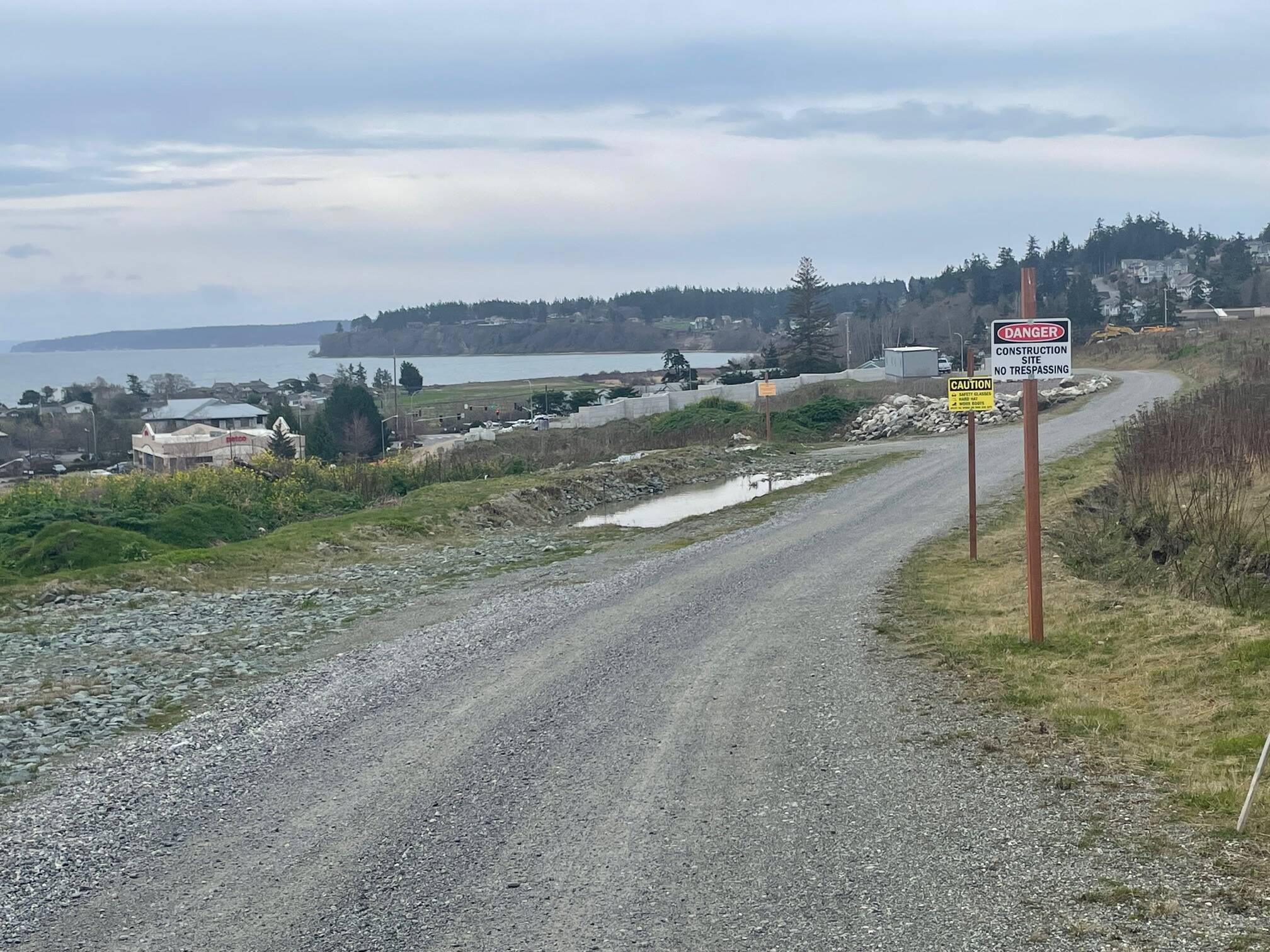The Oak Harbor City Council granted a developer a two-year extension of an agreement related to a large-scale housing development on the hillside above the Safeway and Walmart.
In a 5-2 vote at a meeting Tuesday, the council approved the two-year extension of a development agreement and Planned Residential Development between the city and Pacific North Group, Inc. In addition, the council gave the developer 60 days to abide by conditions that include creation of a construction schedule and an engineer’s estimate.
It’s been about five years since the 20 acres were cleared to make way for a 192-house development in the highly visible property in Oak Harbor and little visible progress has been made. The development agreement and subdivision was set to expire at the end of the month, according to city staff.
Scott Thompson of Pacific North Group spoke during the meeting, discussing the challenges the project has faced — including the stop-construction order during the COVID-19 pandemic and skyrocketing construction costs — but reassuring the council that he will not give up on it. He said his company has $4 billion in cash reserves so “we’re not going anywhere.”
“I’m not concerned about whether we can hold up,” he said. “I’m probably more concerned about the community being able to hold up in a severe recession if we do find ourselves in one.”
Thompson was blunt about complaints about the city and people he felt have spread lies.
“So I’m kind of your partner and not your enemy, but I feel like your enemy,” he told the council. “I really have been treated crappy.”
Thompson also questioned whether the agreement really expires at the end of the month, arguing that it actually sunsets in the fall of 2026. The city attorney, however, said that he is incorrect.
The council members largely empathized with Thompson and did not defend the city against the accusation, although Councilmember Tara Hizon explained it was not the city’s intention to make things difficult for him.
Councilmember James Marrow said he was glad that Thompson spoke up.
“When there’s no solid information available publicly, it’s very important to get a grasp of what the developer is going through,” he said.
Councilmember Eric Marshall questioned Development Services Director David Kuhl about some parts of the development agreement and asked whether it was unusual to add such conditions as an engineer’s estimate to the extension.
Kuhl said the conditions are spelled out in the development agreement and city code, but he emphasized that he would like a new development agreement and subdivision to be worked out between the city and Thompson.
The current agreement was unique in that it allows the infrastructure and housing to be built at the same time; normally the infrastructure has to be completed before building permits can be issued.
Kuhl said this “innovative” agreement has not worked out.
“One of the problems we’ve had with this project is nothing has moved in any particular piece,” he said. “So we think if we go back to the conventional way of processing subdivisions and building permits, we think we will be more successful.”
Kuhl offered the council members several options moving forward. He said they could choose to extend the development agreement and subdivision for one year, two years or allow it to expire. A fourth option was to include a 30-day extension while waiting for the developer to submit necessary documentation.
In the end, the council approved a two-year extension with a 60-day deadline for Thompson to submit a construction schedule and an engineer’s estimate, as well as obtain any necessary bonding.
The motion passed 5-2, with Councilmembers Christopher Wiegenstein and Bryan Stucky voting against it. Stucky had previously said he favored the one-year extension that Thompson had requested.



